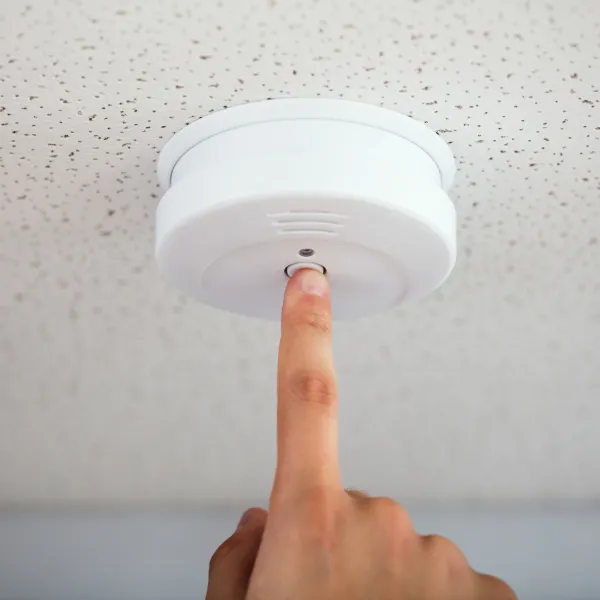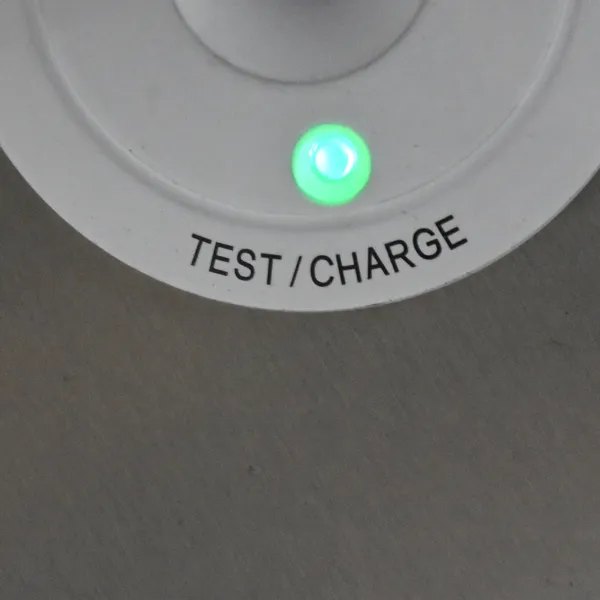Why is My Fire Alarm Beeping?
There are many reasons your fire alarm is beeping from low battery to dust interrupting the current. This page looks to deep dive into how fire alarms work to better understand why they may be beeping and what you can do to troubleshoot them to stop the beeping and restore peace and safety to your home.
As annoying as it may be though DO NOT unplug or remove a fire alarm as this may void your insurance and put you and your family at risk of not waking up or being alerted of a house fire. Fire alarms save lives and it is of the utmost importance that your fire alarms are on and working correctly to help protect your family, business, or home.
How Do Fire Alarms Work?
There are two main types of fire alarms; ionisation and photoelectric. Both of these alarms rely on sensing the fluctuations in an electrical current as the smoke particles pass through it.
- Ionisation Detectors:
These were one of the original fire alarm systems and are the most common type out there. They use a small amount of Americium 241 on one of two electrically charged plates. The Americium 241 is a weak radioactive metal created as a waste product from nuclear generators the radiation it releases is too weak to penetrate human skin but strong enough to ionise the air between the two electrically charged plates. This lets a current travel between these plates. When smoke passes through the sensor it interferes with the current this is then picked up by a sensor that then triggers the alarm.
- Photoelectric Detectors:
Photoelectric fire alarms are a newer type of fire alarm that is quickly becoming as popular as ionisation. These systems fire a light across the face of a sensor without it coming into contact with it. When smoke passes through the sensor it refracts the light into the sensor triggering the alarm. As all they need are one or two particles to activate they are far faster than ionisation detectors at recognising smouldering or slow-burning fires which are the most common type of household fire.
Smoke detectors often use one of these technologies however newer alarms are being fitted with both to better detect fires and reduce false alarms.

Causes For Fire Alarms To Beep
There are many causes for a fire alarm to beep the main one is smoke whether it's from cooking or an electrical fire. However, there are a myriad of other reasons for them to both trigger the alarm or intermittently beep.
Fire Alarm Randomly Going Off
There are a few main reasons for a fire alarm to randomly go off including:
- Humidity:
If your fire alarm has been installed too close to your bathroom it may be going off because of the steam. The steam much like smoke can interfere with the electrical currents or refract light in the fire alarm causing a false alarm.
- Volatile organic compounds in paint:
If you have been doing some painting around your home some of the volatile organic compounds used within the paint can affect the electrical or light current much like smoke particles to cause a false alarm.
- Dust, aerosols, cooking fumes and other airborne particulates:
Dust build-up in older fire alarms can interfere with the current causing the alarm to activate.
- High air movement:
If you have a fan or air conditioner blowing directly onto a fire alarm it can increase the chase of false alarms due to particulates in the air getting blown into the alarm.
- Unstable power currents:
This is more prevalent in ionisation fire alarms but a fluctuation in the electrical current flowing through the unit can falsely register setting the alarm off. These fluctuations can be due to a few different things including:
- Dirty power: This is more common in rural areas where the power grid isn't as efficient and can cause a dirty or fluctuating current through your home or business.
- Fluctuating solar: When your solar system hasn't been correctly installed or is getting old the current it releases into your home can fluctuate.
- Overloaded circuits: Fire alarms are often installed on the same circuit as your lighting systems if the lighting circuit has too many lights installed on it or older bulbs it can overload the circuit and cause the current to trip or fluctuate.
- Light Dimmers: If the lighting circuit your fire alarms are installed on has a dimmer the alarm can trigger when you dim the lights as the current the alarm receives is reduced.
- Older batteries: We will touch more on batteries in the next section but in some cases, as the battery ages it can lower the current and lead to an increasing number of false alarms.
- Nearby fires, bushfires or ambient air pollution:
These can all cause false alarms as the increase in particulates in the air interferes with your fire alarms.
We will touch a bit later on what you can do to fix these problems to stop your fire alarm from randomly going off.
Fire Alarm Intermittently Beeping Roughly Every 30 Seconds
There are a few main reasons for a fire alarm beeping intermittently most often it's due to low battery but can be due to a few different other reasons.
- Low battery:
In battery-powered fire alarms when the battery gets low the alarm will begin to beep every 30-40 seconds from the unit with a low battery to alert you of this. You can also check to see if a red light is flashing in time with the beep this further signals that the battery is low.
- Power has cut out and the backup battery is getting low:
In hardwired fire alarms, they are also fitted with a rechargeable battery for when the mains power cuts out. As the battery gets low the system will start to intermittently beep. To fix this you should turn the power back on at the circuit breaker and check that the green light or red light has come back on. The alarm may still beep for a while until the battery is charged.
- Other reasons:
Some fire alarms may beep to alert you of different faults in the unit the best thing to do for these is to check the manual specific to your unit to diagnose what the beep means.
Fire Alarm Beeping After New Battery
If you have replaced the batteries in your fire alarm there are a few reasons it may still be beeping:
- Check it is the fire alarm beeping, not another appliance:
In some cases it isn't the fire alarm beeping it may be a myriad of other appliances including:
- Low battery in hearing aids
- A low battery in the fridge
- The fridge door was left open
- Stove left on
- Iron left on
- Phones
- and more
Checking the other appliances in your home before further investigation of your fire alarm can save you big time in messing around with your alarms when it wasn't them in the first place.
- Age of the alarm:
Fire alarms typically have a 7-10 year lifespan and as they get older they can begin to malfunction leading to weird beeps or false alarms.
- Old battery:
Even if the battery is new out of the packet if it's been in your cupboard for years it may have lost charge.
- Incorrectly installed battery:
If the battery has been incorrectly installed the system will not receive enough power or no power at all.
- The silence button may have been pressed:
If the silence button is pressed some alarms will intermittently beep to alert you that it has been pressed.

What Can You Do To Troubleshoot The Beeping?
There are a few steps you can take to troubleshoot a problem before contacting a licensed electrician to repair or replace your fire alarm.
- Check to see if there is a fire.
- Check other appliances in the house aren't beeping.
- Locate the beeping alarm.
- Check to see if there is an increase in air pollution or smoke from a nearby fire.
- Check if the alarm was triggered by an alarm near a bathroom and someone just had a shower.
- Check dimmers are turned all the way up if your alarms are on the same circuit.
- Check the alarm for any build-up of dust or other debris.
- If there is debris use a vacuum with a brush head to gently clear these debris away.
- Replace the battery with a new battery or check if the circuit breaker hasn't tripped and if it has switch it back on.
- If the beeping continues hard reset the alarm by removing the battery and holding the test button down for 30 seconds. This drains all power from the alarm hard resetting its sensors. Once this is done replace the battery ensuring it is installed correctly.
- Check other appliances in the house or your other fire alarms as it may be them.
- If none of these work and your alarm is still beeping you will need to contact a licensed electrician to come and test the alarm and repair or replace it if needed.
If your alarm won't stop beeping contact All Purpose Trade Solution for all your smoke detector needs.
Refrences:
Why do smoke detector alarms go off even when there's no smoke? | ABC News
Contact us today.
We offer obligation-free quotes, and guarantee all of our workmanship 100%. For more information about our services, please contact our team today.
